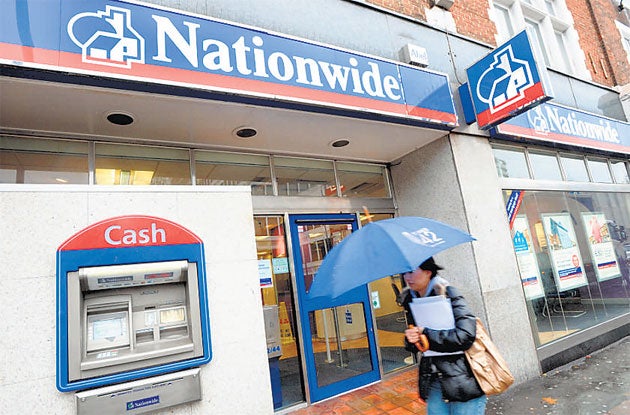Nationwide's ads hark back to an idealised past. Are they justified by its fatcat present?
The building society says it pays its bosses less than those working for comparable institutions but the chief executive's £2.3m package puts him in the same ballpark

Your support helps us to tell the story
From reproductive rights to climate change to Big Tech, The Independent is on the ground when the story is developing. Whether it's investigating the financials of Elon Musk's pro-Trump PAC or producing our latest documentary, 'The A Word', which shines a light on the American women fighting for reproductive rights, we know how important it is to parse out the facts from the messaging.
At such a critical moment in US history, we need reporters on the ground. Your donation allows us to keep sending journalists to speak to both sides of the story.
The Independent is trusted by Americans across the entire political spectrum. And unlike many other quality news outlets, we choose not to lock Americans out of our reporting and analysis with paywalls. We believe quality journalism should be available to everyone, paid for by those who can afford it.
Your support makes all the difference.Unless you’ve been hiding under the rock named Netflix and ignoring YouTube and commercial TV, you’ll likely have seen the latest ad from the Nationwide Building Society featuring poet Stephen Morrison-Burke.
Against a backdrop of suitably stirring music, he recites a verse that harks back to the society’s foundation in 1775 when “metal workers met in coffee houses to discuss the need for better housing” and “everyday people came together to help each other afford a home of their own”.
Today’s Nationwide is, we are told, the “modern day sequel where everyday people help everyday people”.
We’re not like those greedy banks! We’re on your side. We’re you!
Except that there’s nothing every day about the people running Nationwide, as a cursory flick through its annual report makes clear.
The 2018 edition quoted £2.3m for chief executive Joe Garner’s pay for the year ending April 18. Three other executives received between £1.3m and £1.5m.
“As a mutual our approach to reward is different,” intoned Lynne Peacock, the chair of the remuneration committee. “People join the Society for a number of reasons beyond the financial, and in overall terms we pay less than the market for our executive team, relative to their peers in large financial services businesses.”
Up to a point, that's true. Per their most recent annual reports, Lloyds Banking Group boss Antonio Horta-Osorio, who runs a somewhat larger institution, raked in £6.4m. RBS chief executive Ross McEwan made £3.5m.
But Mr Garner’s package is still in the same quantum and he is still, along with them, a member of the 0.1 per cent who lives on a different planet from his every day members. This is one respect in which Nationwide really isn’t all that different from the banks it seeks to differentiate itself from.
But wait, Ms Peacock has an answer for that: “We must accept that we operate in a competitive market and have to recognise that we compete for talent.”
Stop me if you’ve heard that one before. It’s the same tired excuse given by every big business in Britain for paying megabucks to the people they hire to run themselves.
It's a pity Nationwide feels the need to resort to a weary trope that has been repeatedly debunked.
It is in many ways an admirable institution. Owned by its members, with no need to pay dividends to shareholders, it can operate on lower margins and think longer term than is usual among big financial institutions. There is no share price to get trashed if the half yearly results fail to match up to the City’s lofty expectations.
It's largely well run and adds competitive vim to a marketplace that badly needs it.
If it didn’t exist you might have to try and find a way to invent something like it.
But at the same time, you do rather wonder what those "metal workers meeting in coffee houses to discuss the need for better housing" would have made of what it pays its top dogs today.
I imagine that they would have choked on their beverages. And who could blame them?
Join our commenting forum
Join thought-provoking conversations, follow other Independent readers and see their replies
Comments